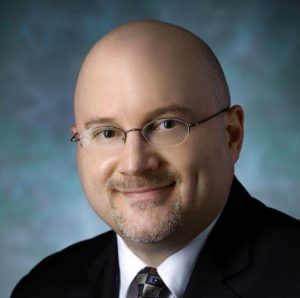
Uncovering the Shocking Dangers of Misdiagnosis
When you develop a health problem with symptoms that trouble you, the first step is to find out what it is. Diagnosis may be the most basic task a doctor or other healthcare provider undertakes. That doesn’t mean it is easy, though. New research is uncovering the shocking dangers of misdiagnosis.
The Dangers of Misdiagnosis Include Death and Disability:
How common are diagnostic errors? Estimates suggest that between 5 and 11 percent of diagnoses may be wrong, and sometimes those mistakes hurt patients. Doctors may believe that getting it right 90 percent of the time is a pretty good track record, especially since diagnosis can be anything but straightforward. Patients don’t seem to feel the same way if they have experienced a misdiagnosis, and especially if it has harmed them.
If you look at the rates of serious diseases and just how frequently they may be misdiagnosed, the results are alarming. A team of investigators calculate that problems with diagnosis may cause serious harm to an estimated 795,000 Americans each year. Their estimates actually range from 598,000 to 1,023,000, and include both deaths and permanent disability (BMJ Quality & Safety, July 17, 2023). The top five most dangerous diseases accounted for a disproportionate amount of the harms, nearly 40 percent. They include stroke, sepsis, pneumonia, venous thromboembolism and lung cancer.
Overlooking Symptoms of a Stroke:
Our guest, Dr. David Newman-Toker, is a neurologist who has been striving for decades to get his colleagues to recognize the subtler symptoms of a stroke. We read him an email we received from a listener named Ralph.
Here is what he wrote:
“Count me among the survivors of a diagnostic mistake if you will, but I call it simple laziness on the part of my former GP. For weeks, I complained of massive headaches, accompanied by nausea and vertigo. My GP had me keep a daily record of my blood pressure for 30 days. (No hurries, right?)
“When I showed him the record, he shrugged and said my blood pressure was normal. He had nothing else to say. Two weeks later, I almost died from a serious stroke. It cost me my career and required eight months of rehab. My cardiologist was livid with my (now former) GP, saying he should have referred me to a specialist.”
Dr. Newman-Toker observes that most people now recognize the most obvious symptoms of stroke, such as one-sided weakness or paralysis and problems with understanding or producing speech as well as sudden vision problems. But difficulties with balance (dizziness), nausea and headache, fainting or double vision may be less well recognized. As Ralph’s story shows, severe head pain or persistent dizziness deserves prompt attention.
Fighting the Dangers of Misdiagnosis with the Four Ts:
Dr. Newman-Toker and his colleagues promote the concept of four Ts to help reduce the burden of diagnostic mistakes. Those are:
Teamwork
Training
Technology
Tuning
These approaches apply primarily to healthcare providers, but we want to know how patients can be part of the team.
How Can Patients Avoid the Dangers of Misdiagnosis?
Dr. Newman-Toker has three recommendations:
1. Prepare for your visit. Have a succinct synopsis of your symptoms and the time frame and order in which they appeared.
2. Ask important questions. These will vary with the individual situation. However, two of the most important questions are: What is the worst thing this could be? and Why do you think it is not that?
3. Stay vigilant. If your symptoms do not begin to resolve with treatment, bring this to the provider’s attention. Ask the question: Might these symptoms be caused by something else? You will have already asked when to expect test results and how soon symptoms should respond to treatment. Don’t assume that if you hear nothing you should keep quiet.
The Society to Improve Diagnosis in Medicine:
Dr. Newman-Toker is the current president of the Society to Improve Diagnosis in Medicine. This organization is dedicated to reducing the toll of diagnostic mistakes. It counts among its members some of the leading researchers on this topic as well as providers striving to limit the dangers of misdiagnosis. Patients can be members too. You’ll find it at https://www.improvediagnosis.org The annual conference on The Future of Diagnosis is October 8-11, 2023.
This Week’s Guest:
David Newman-Toker, MD, is Director of the Division of Neuro-Visual & Vestibular Disorders in the Department of Neurology and Professor of Neurology at the Johns Hopkins University School of Medicine. Dr. Newman-Toker is the Director of the Johns Hopkins Armstrong Institute Center for Diagnostic Excellence, as well as the president of the Society to Improve Diagnosis in Medicine (SIDM).
https://www.hopkinsmedicine.org/armstrong_institute/centers/center_for_diagnostic_excellence/
https://www.improvediagnosis.org/

David Newman-Toker, MD, PhD, Director of the Johns Hopkins Armstrong Institute Center for Diagnostic Excellence.Photo courtesy of Johns Hopkins Medicine
Listen to the Podcast:
The podcast of this program will be available Monday, September 11, 2023, after broadcast on September 9. You can stream the show from this site and download the podcast for free.
If you wish to listen to a previous interview with Dr. Newman-Toker, you will find it here: https://www.peoplespharmacy.com/articles/show-1186-what-happens-when-doctors-make-diagnostic-errors

